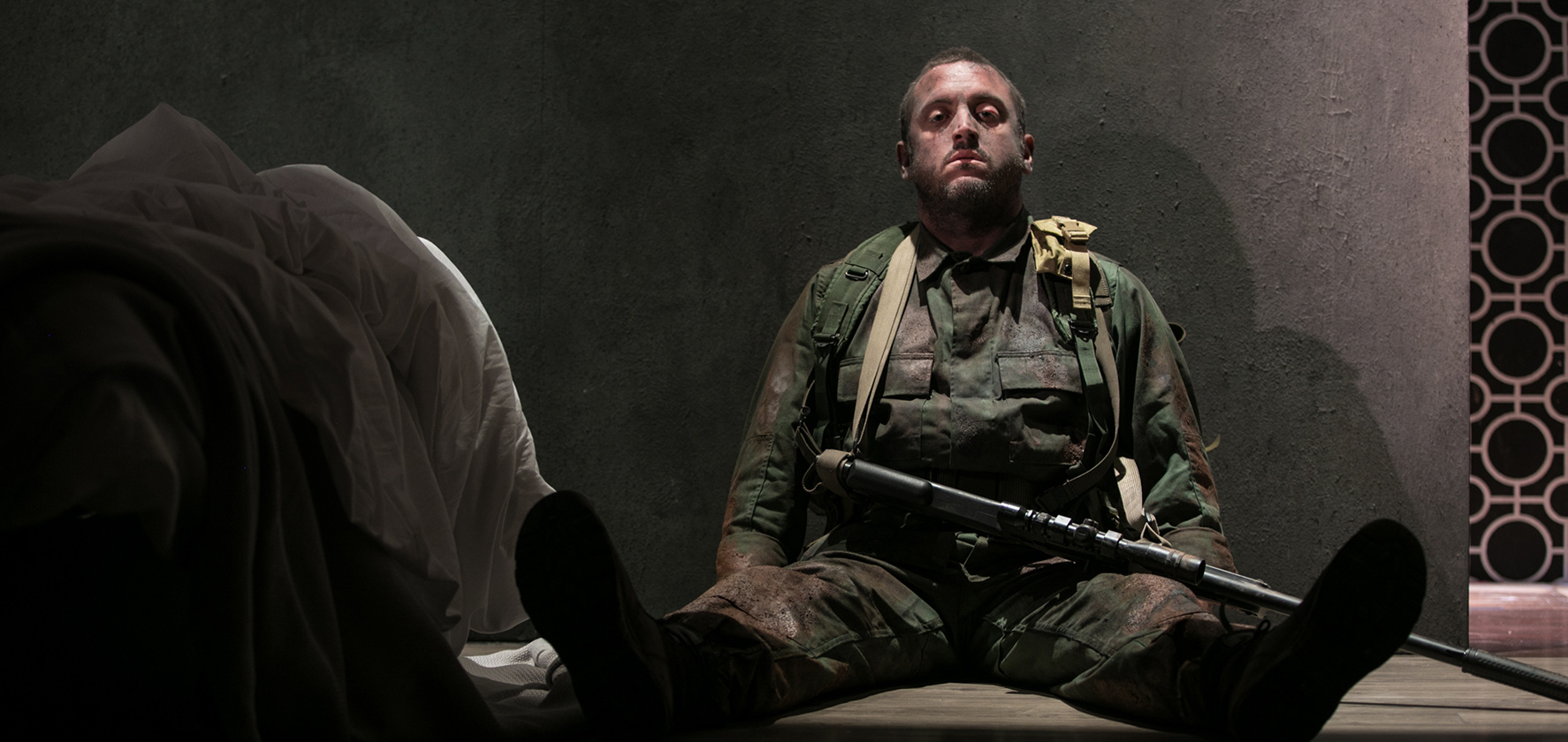The Story
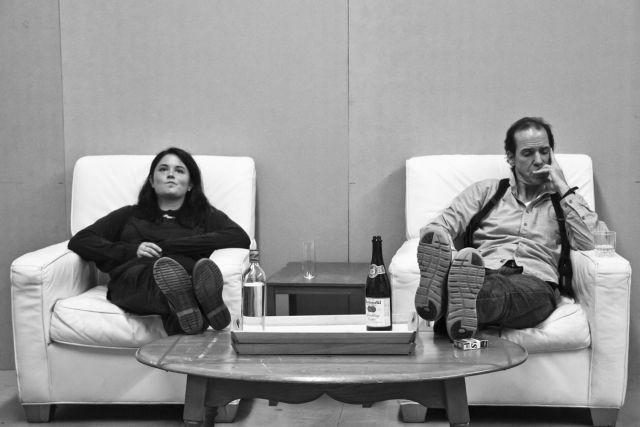
Ian and Cate check into an upscale hotel room in Leeds, a city in West Yorkshire in England. We soon learn that they are ex-lovers. Ian, a middle-aged journalist, reached out to Cate, a twenty-one year old from South London. Although Ian broke off their relationship, Cate agrees to meet him: “I was worried... you sounded unhappy.” Soon the situation unravels both in the hotel room and in the outside world.
Sarah Kane’s Blasted makes a distinct—and disturbing—correlation between personal and global violence. Sarah Kane wrote:
“One is the seed and the other is the tree. And I do think that the seeds of full-scale war can always be found in peacetime civilisation and I think the wall between so-called civilisation and what happened in central Europe is very, very thin and it can get torn down at any time.”
Artistic Director Patrick Dooley on Choosing to Present Blasted
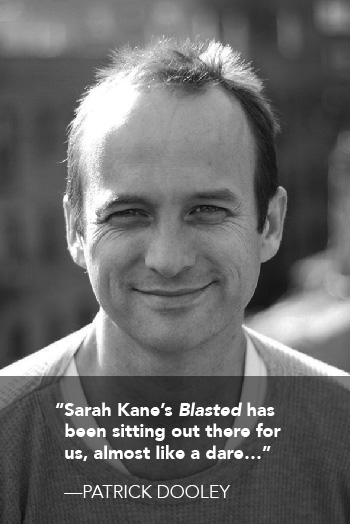
"For an organization, hungry for stories that challenge all of us to be awake to the breadth and depth of the human experience, this play stands alone. But the well-documented violence and depravity of the piece always made it feel just too… extreme. But extreme times demand extreme theatre.
The atrocities portrayed in this piece were all drawn from real life accounts of the Serbo-Croatian genocide. And, while the events may seem unimaginable – far-fetched – that’s only because most of us have been fortunate not to have this kind of violence as part of our everyday lives. But that doesn’t mean it’s not happening. No one chooses to live in a place where their lives are under threat. They rarely have a choice. Those of privilege – many of us – can work, raise our families, recreate – live our entire lives completely free from danger. For that we are, blessed. The closest we come to violence is a news account or image on social media. Unless we choose to pay attention, these victims (and they’re all victims – even the perpetrators) are nameless numbers. A blur of something we’d rather not see. But these cycles don’t stop just because we choose to ignore them. On the contrary. History has taught us that sitting idling by actually makes us complicit. Kane was so upset by the lack of reaction to the horrors in a neighboring country, she wrote a play that destroys the surrounding walls – bringing the violence inside. We love theatre because of its immediacy. It’s happening right in front of you. Everything is heightened. You cannot turn to the sports section in the theatre. You must open your mind and heart and take it in.
And then what? Like any great artist, she isn’t content just to hijack your attention for 90 minutes. She wants us to change the way we live in the world. She wants us to think about how our expressions of cruelty and compassion ripple through the universe. Our actions and inactions have consequences. We may not be able to stop a genocide, but we can support a loved one. We can help a stranger. Or as Kane challenges—we can open your eyes and heart and reach out to the suffering—even if they have caused us pain—and offer grace."
—Patrick Dooley, Shotgun Players Artistic Director
Director Jon Tracy and the ‘Mystique’ of Blasted
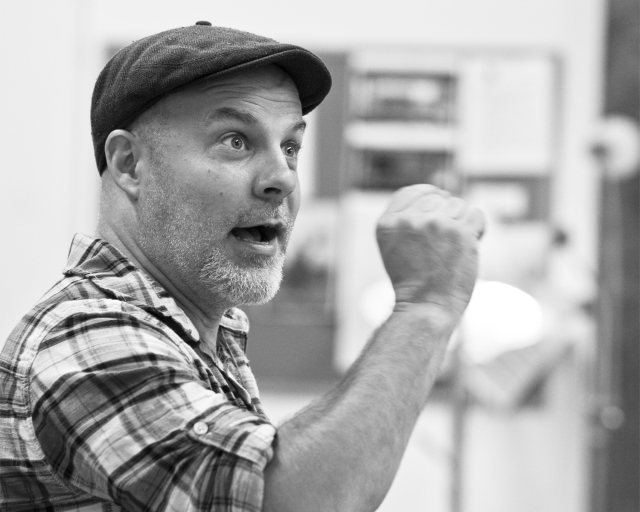
It’s not easy to catch up with director Jon Tracy. In addition to being a long-time company member at Shotgun Players, he is also the artistic airector at Theatre First, and he and his wife, set designer Nina Ball, just welcomed baby Jacob into the world. A few weeks ago we spoke to him just before a rehearsal for Blasted. He shared some thoughts on the play:
“There is such a mystique around this piece. I hope what people come away with is the realization that the things they thought would be challenging wound up to be the least of their experience.The play is unbelievably well written. The real danger of the story comes with some of the nuances of language. How people listen and how people try to live in these moments and survive these moments - how can you laugh through something when your body wants to cry?
The surprise of the story is that it’s full of hope, full of love, full of tenderness. And underneath those three words there is a world of conflict.
We are self selecting what is true and what is not... unfortunately Cate and Ian find a way not only to let conflict create them but also sustain them. Until everything falls apart. How do you survive in a world where no one knows the rules? How do you survive a challenge for which you do not know the rules? We have a desire to survive, but how can we connect along the way? What is that connection? And what will we accept as connection if we don’t get what we think it is supposed to be? What will we sacrifice? What will we demand? Is there a value outside of human connection? I don’t think so. We are nothing without each other. But I think the fear of not being able to connect results in some dangerous situations.
Each audience member is going to have one very personal experience of this show; this show is about parts of ourselves that we don't want to share. And I think that a really great place for us to grow from.”
King Lear, Titus Andronicus, and Blasted
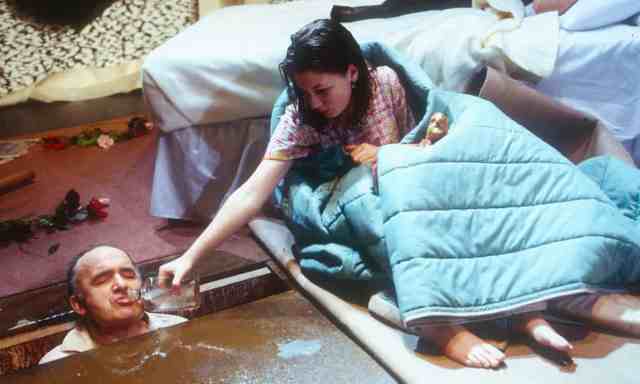
When Blasted debuted in 1995 many critics were aghast at the acts of violence depicted on stage. Yet there are some striking similarities to the violence in Blasted the violence we find in classical works of Shakespeare. In King Lear the Duke of Cornwall gouges out the eyes of the Duke of Gloucester:
“Lest it see more, prevent it. Out, vile jelly!”
“Where is thy lustre now?”
The cruelty of the Duke of Cornwall is matched by his wife Regan who orders that Gloucester thrown out of doors with the admonishment:
“Let him smell his way to Dover.”
Titus Andronicus, like Blasted, is renowned for its brutality. Shakespeare’s play features rape, dismemberment, torture, and cannibalism. The cycle of violence in Titus Andronicus begins with Titus Andronicus ordering the execution of Alarbus, the eldest son of Tamora, Queen of the Goths. Tamora pleads for mercy but Titus refuses. Then there is a reversal of fortune when Tamora marries the emperor. And so the cycle of violence continues. Tamora orders her sons to rape Titus’ daughter Lavinia. To ensure that Lavinia will not reveal what happened, her hands are severed and her tongue is cut out. The violence escalates until there is a bloody feast in which Titus dismembers Tamora’s sons in revenge for their violence on Lavinia, and he bakes them into a feast that is served to Tamora.
A question to ask perhaps is this: why are we comfortable with violence in Shakespeare? In Henry VI Part 2 there is a scene that begins with severed heads on pikes. Perhaps it’s the distancing—that these are old stories. Perhaps it’s the iambic pentameter. Another question is: just how desensitized are we to violence in the news? There is no shortage of coverage of horrific events. With television news outlets, there may be a report about war, about the refugee crisis, about an attack, that is followed by commercials for movies or tv shows that glamorize violence.
So perhaps it is not surprising that we are desensitized. And that is precisely what Sarah Kane wanted to address with Blasted. She wrote the following about her writing process for Blasted:
“I switched on the news one night while I was having a break from writing, and there was a very old woman’s face in Srebrenica just weeping and looking into the camera and saying, ‘Please, please, somebody help us, because we need the UN to come here and help us.’ And I was sitting there and watching it and I thought no one’s going to do anything. . . . I thought this is absolutely terrible and I’m writing this ridiculous play about two people in a room. What does it matter? What’s the point of carrying on? So I now knew what I wanted to write about, yet somehow this story about the man and the woman is still attracting me. So I thought, ‘What could possibly be the connection between...a Leeds hotel room and what’s happening in Bosnia?’ And suddenly the penny dropped and I thought, ‘Of course it’s obvious, one is the seed and the other is the tree.’”
To read an article comparing Blasted to King Lear click here.
In response to the criticism of the violence in the play Sarah Kane wrote:
“I tried to draw on lots of different theatrical traditions. War is confused and illogical, therefore it is wrong to use a form that is predictable. Acts of violence simply happen in life, they don’t have a dramatic build-up, and they are horrible. That’s how it is in the play. Critics would prefer it if there was something artificial or glamorous about violence.”
Gothic Miserablists
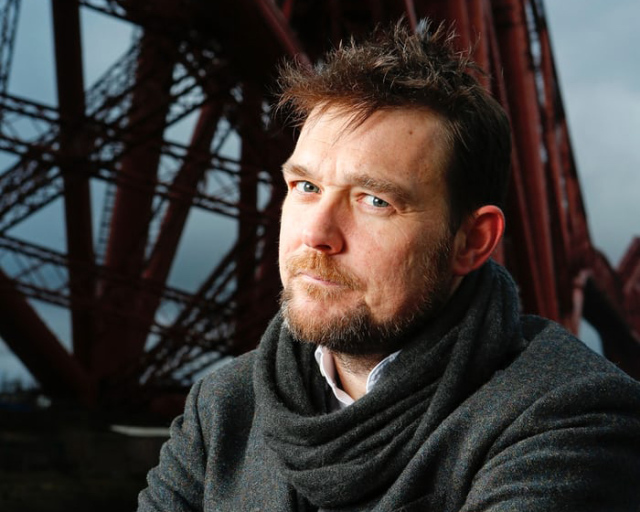
Earlier this year we produced The Events by David Greig. Back in the 1990s, Sarah Kane and David Greig were room mates. In an article in The Guardian author Simon Hattenstone describes Greig and Kane as “part of an intimate circle of gothic miserablists... They listened to Joy Division, dressed in black, raged against the slaughter in the Balkans.” David Greig comments: "We both shared a slightly depressive outlook, a whole group of us, who shared an enjoyment of the darker things - a post-adolescent dwelling on the question of life, if you like." When Blasted debuted in 1995 David Greig actually thought that Sarah Kane would be pleased that the play gained such notoriety - even if it was negative. She didn’t. Greig shares: “She found it really difficult that they were not taking her artistically seriously. In some way, Sarah was very arrogant. She knew Blasted was a very great work, and she found it devastating that that was not recognised.”
One of the leading theatre critics in London is Michael Billington. He was one of many critics who deplored the debut of Blasted. He is also one of many critics who later claimed he was wrong about Blasted and described the play as having “moral seriousness.” Billington writes: “it was difficult to judge the play coolly and calmly. So I got it wrong, as I keep saying. She was a major talent. Apparently, Harold Pinter said at her memorial service that she was a poet, and I think that's dead right.”

